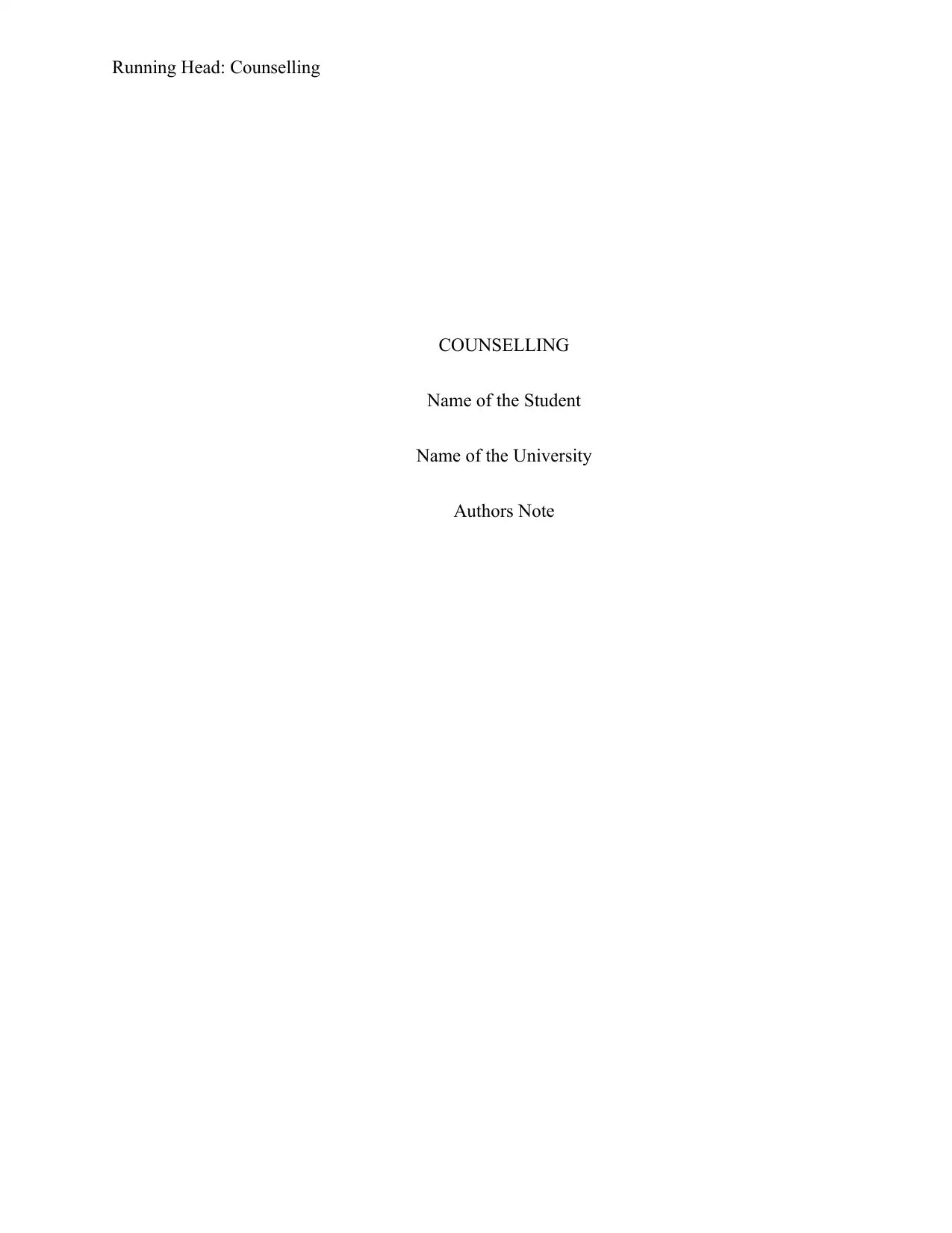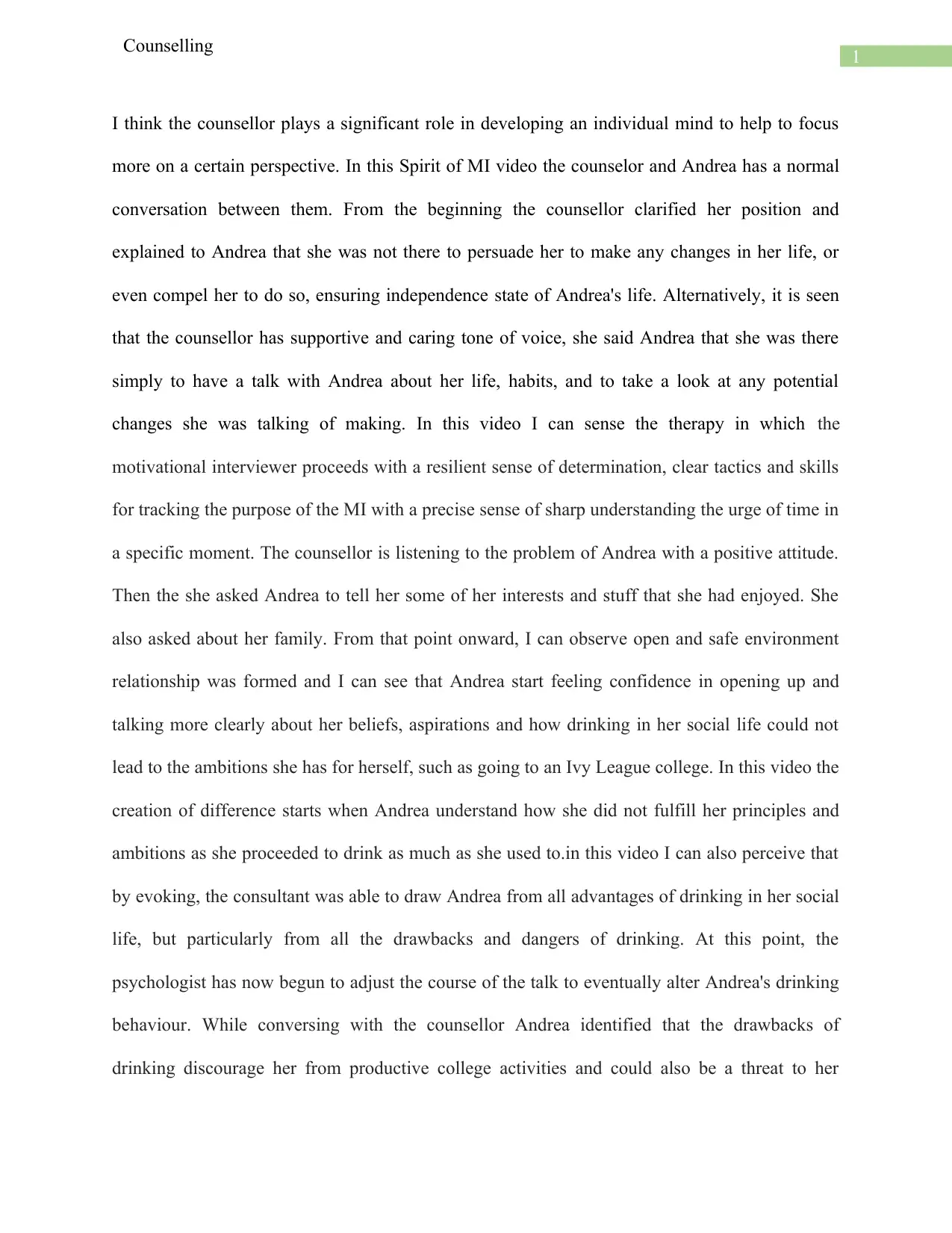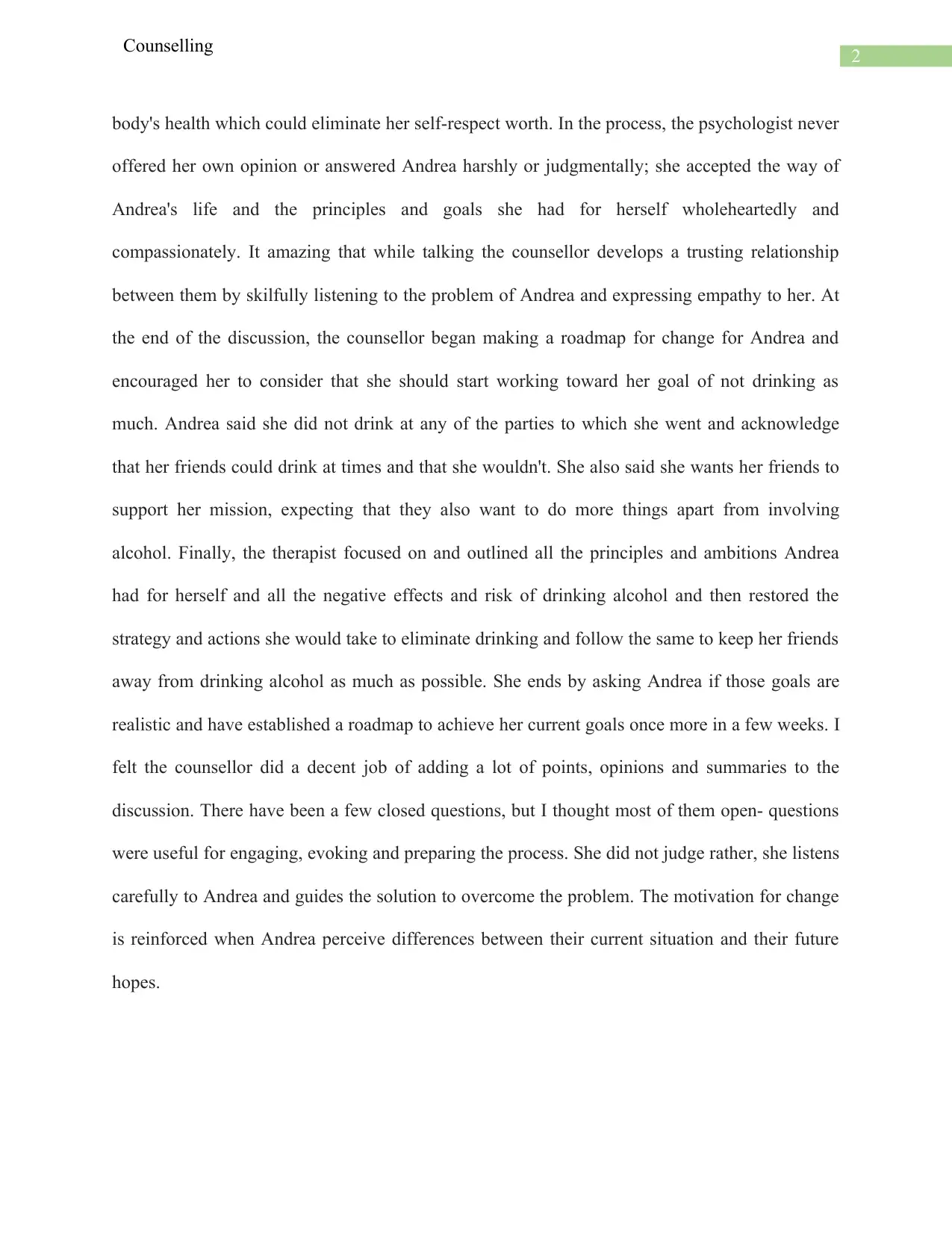Observations on Counselor's Motivational Interviewing Techniques
VerifiedAdded on 2022/09/21
|4
|764
|22
Discussion Board Post
AI Summary
This discussion board post analyzes a video of a successful school counselor employing motivational interviewing (MI). The student observes the counselor's application of the Spirit of MI, emphasizing collaboration, evocation, autonomy, and compassion. The analysis focuses on how the counselor builds rapport, uses open-ended questions, affirmations, reflections, and summaries (OARS) to explore the client's ambivalence and elicit change talk. The student highlights the counselor's skill in guiding the conversation to explore the client's values, goals, and the discrepancies between their current behavior and desired outcomes. Furthermore, the analysis covers the counselor's ability to address resistance and support the client in developing a plan for change, demonstrating the directive yet collaborative nature of MI. The post also touches upon the counselor's use of evoking techniques, exploring decisional balance, and responding to change talk to reinforce the client's motivation for behavioral change. The student reflects on the effectiveness of the counselor's approach in fostering a supportive environment and facilitating the client's self-discovery and commitment to change.
1 out of 4










![[object Object]](/_next/static/media/star-bottom.7253800d.svg)